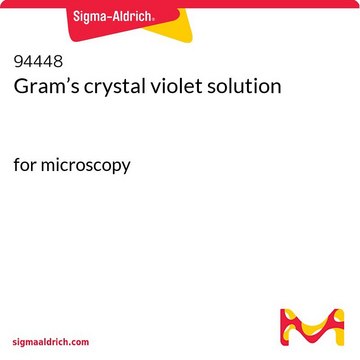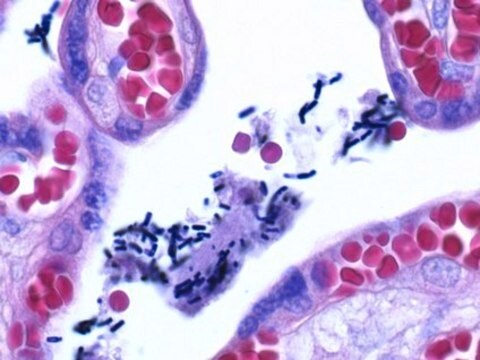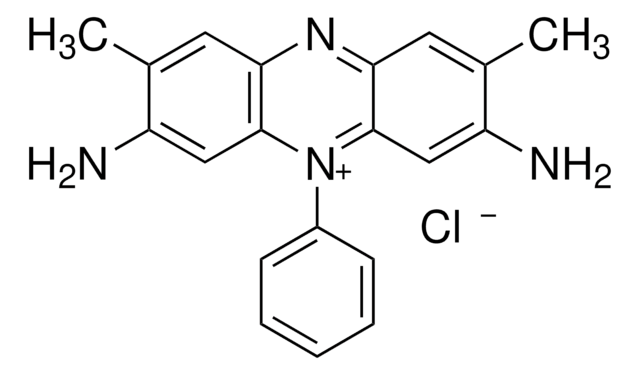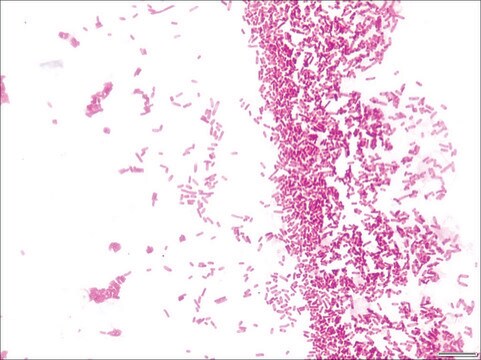HT90132
Crystal Violet Solution
About This Item
Prodotti consigliati
Forma fisica
solution
Livello qualitativo
Durata
Expiry date on the label
IVD
for in vitro diagnostic use
Concentrazione
2.3%
tecniche
microbe id | staining: suitable
pH
4.6
applicazioni
hematology
histology
Temperatura di conservazione
room temp
Stringa SMILE
[Cl-].CN(C)c1ccc(cc1)\C(c2ccc(cc2)N(C)C)=C3/C=C\C(C=C3)=[N+](/C)C
InChI
1S/C25H30N3.ClH/c1-26(2)22-13-7-19(8-14-22)25(20-9-15-23(16-10-20)27(3)4)21-11-17-24(18-12-21)28(5)6;/h7-18H,1-6H3;1H/q+1;/p-1
ZXJXZNDDNMQXFV-UHFFFAOYSA-M
Cerchi prodotti simili? Visita Guida al confronto tra prodotti
Applicazioni
Componenti
Avvertenze
Warning
Indicazioni di pericolo
Consigli di prudenza
Classi di pericolo
Aquatic Chronic 3 - Carc. 2 - Eye Irrit. 2 - Flam. Liq. 3
Codice della classe di stoccaggio
3 - Flammable liquids
Classe di pericolosità dell'acqua (WGK)
WGK 2
Punto d’infiammabilità (°F)
100.0 °F - closed cup
Punto d’infiammabilità (°C)
37.8 °C - closed cup
Dispositivi di protezione individuale
Eyeshields, Faceshields, Gloves, type ABEK (EN14387) respirator filter
Certificati d'analisi (COA)
Cerca il Certificati d'analisi (COA) digitando il numero di lotto/batch corrispondente. I numeri di lotto o di batch sono stampati sull'etichetta dei prodotti dopo la parola ‘Lotto’ o ‘Batch’.
Possiedi già questo prodotto?
I documenti relativi ai prodotti acquistati recentemente sono disponibili nell’Archivio dei documenti.
I clienti hanno visto anche
Il team dei nostri ricercatori vanta grande esperienza in tutte le aree della ricerca quali Life Science, scienza dei materiali, sintesi chimica, cromatografia, discipline analitiche, ecc..
Contatta l'Assistenza Tecnica.







